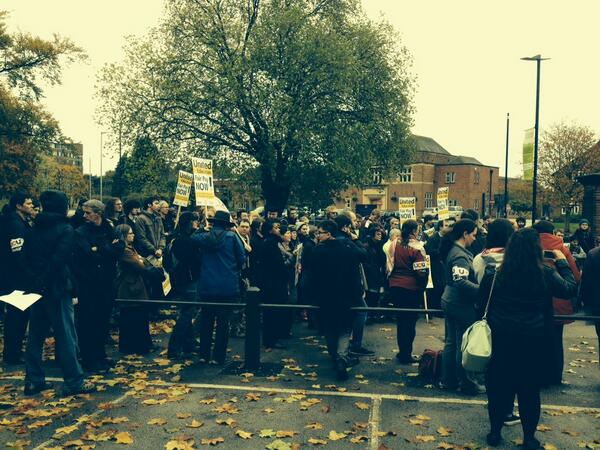If you support higher education, you must support today's strike
Crossing the picket lines is letting hard-working academic and support staff down

Earlier in the month, 3,500 schools across England were at least partially closed as members of NUT and NASUWT took to the streets to demonstrate their discontent with Michael Gove's continued campaign to apparently make the lives of teachers as difficult as possible. Despite causing a day of inconvenience to parents whose children had no school to attend, the grievances of teachers were undeniable.
However, it is not just in primary and secondary education that problems lie. Universities are of course allowed far more independence than schools from the Government, mainly because they are not solely state-funded. UCU's qualms stem mainly from pay disputes: despite being offered a one per cent pay rise by the higher echelons of university hierarchies, they claim that in real terms, this translates to a 13 per cent cut in wages since 2008. While the heads of universities can earn upwards of £200,000, this is inevitably a bitter pill to swallow for the rank-and-file lecturing and administration staff, and a gross injustice.
Such a flatline in wages for staff would not be so outrageous were it not for the tuition fee rise last year which propelled average fees through the roof and into the stratosphere, where they currently sit around £8,500 per year. Indeed, this had an effect of putting many students off enrolling, with a 13 per cent drop reported in January of this year. However, for those that remain unperturbed by extortionate debt, the universities can now take up to an extra £18,000 in fees for each student on an undergraduate program.
One would hope that at least some of this increased income would go towards staff wages, especially given that the stagnancy of them began before the fee rise. Institutions cannot even blame this on increased staffing, which has remained similarly unmoved since 2008. In 2010/2011, academic staffing made up 30 per cent of expenditure for higher educational institutions. If income has risen, but staffing and wages has stayed the same, where has this extra money gone where it wasn't needed pre-fee rise? As students, we must question why those who are providing our education have apparently been left out of the equation.
While many will be asking why we should support the strikes in light of discovering that we get less contact time now than ever - I myself receive a measly eight hours a week – it is vital to recognise that the link between this and lecturers being stretched to the limit in their work is certainly not coincidental. By supporting striking lecturers, we are helping to demand that more of our money is going to those who teach us and run our universities day-to-day. Maybe then, we can get our money's worth. If Sussex students can show solidarity, so can we all; after all, it is our money, our education, and our futures.
Subscribe to Independent Premium to bookmark this article
Want to bookmark your favourite articles and stories to read or reference later? Start your Independent Premium subscription today.

Join our commenting forum
Join thought-provoking conversations, follow other Independent readers and see their replies